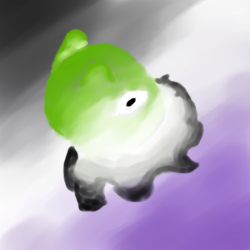 Always on the lookout for anthologies to submit to and support? I might have one for you!
Always on the lookout for anthologies to submit to and support? I might have one for you!
Problem Daughters will amplify the voices of women who are sometimes excluded from mainstream feminism. It will be an anthology of beautiful, thoughtful, unconventional speculative fiction and poetry around the theme of intersectional feminism, focusing on the lives and experiences of marginalized women, such as those who are of color, QUILTBAG, disabled, sex workers, and all intersections of these.
Sounds right up my alley, doesn’t it? This one is edited by Nicolette Barischoff, Rivqa Rafael and Djibril al-Ayad, to be published by Futurefire.net Publishing.
It landed on my feed after people inquired if aromantic and asexual voices were welcomed (which is not always the case, despite the presence of the A), and they wanted to get the word out that, indeed, yes! Here is, in fact, their official statement:
Problem Daughters aims to focus on the voices of women who are excluded from (some) mainstream feminism(s). This obviously includes trans or nonbinary women and sex workers who are explicitly (and violently) excluded from some regressive, pseudo-feminist movements; it also includes women of color and religious women, who are less overtly but equally violently excluded from “white feminism” and concern-trolling secular feminism; and it should obviously also include women whose exclusion may be more in the form of erasure, invisibility, neglect, like disabled, bisexual, polyamorous, asexual and aromantic women. Not that this is a clear-cut distinction, of course—there can be more or less violence in all these intersecting axes of exclusion, including horizontal exclusion by other marginalized groups—and nor is it a comprehensive list. Any women whose marginalizations intersect with misogyny and chauvinism are welcome within the pages of the anthology: as characters, as authors, as artists, as voices we want to hear.
After some thoughtful discussion with a follower on twitter about their emphasis on women, I also asked them about AFAB nb people and trans men who might want to contribute with their experience of misogyny. The answer? Anyone who is comfortable being included in an anthology that is described as containing stories by/about/featuring marginalized women, including AFAB women who no longer identify as such, are welcome to submit stories and be a part of the project.
In any case, they are not, in fact, restricting who can submit, only who the stories are about. So if you want to contribute, you can head to their indigogo page, or check out their call for submission!
